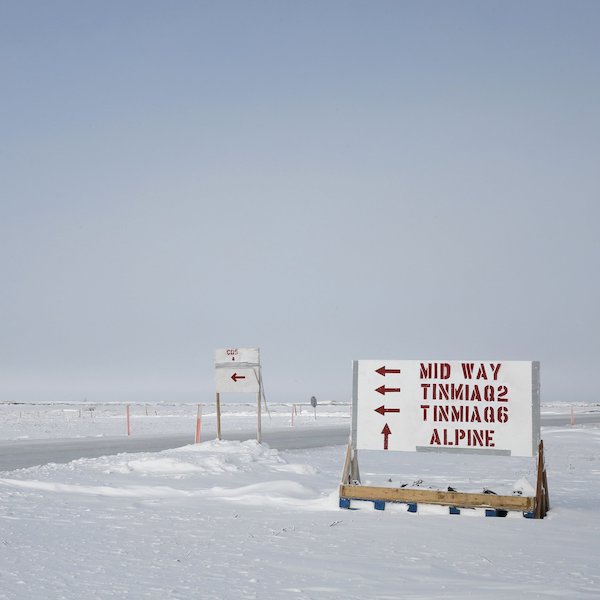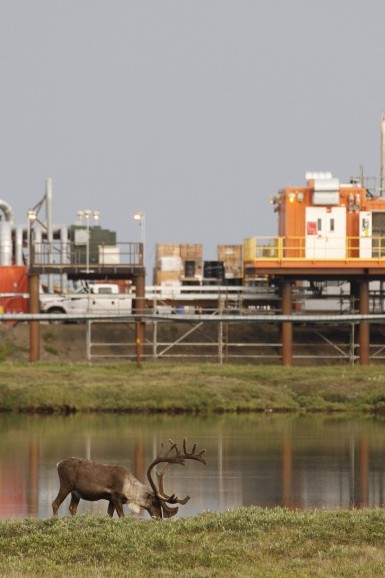US judge dismisses lawsuits seeking to halt Alaska’s Willow oil project

Alaska’s largest oil drilling project in decades will continue toward production.
On Thursday, a federal court judge in Anchorage dismissed two challenges against ConocoPhillips’ Willow project, saying plaintiffs failed to show that the federal government made significant mistakes when it approved the project.
Some of those plaintiffs, which include a constellation of local and national environmental groups, said they intend to appeal Judge Sharon Gleason’s verdict to the US 9th Circuit Court of Appeals. In the meantime, Ms Gleason’s decision means ConocoPhillips may begin its winter construction season, an act with billion-dollar implications for Alaska residents and greenhouse-gas impacts for everyone.
“The court’s decision confirms our confidence that the BLM’s review complied with all legal requirements,” said Erec Isaacson, the president of ConocoPhillips Alaska, in a prepared statement. “Willow underwent nearly five years of rigorous regulatory review and environmental analysis, including extensive public involvement from the communities closest to the project site. We now want to make this project a reality and help Alaskan communities realise the extensive benefits of responsible energy development.”
Rebecca Boys, a spokesperson for ConocoPhillips, said by e-mail that about 800 staff and contractors are working on Willow, and over the winter, workers will build an ice road, set up gravel mining and work on pipelines that will link Willow to the trans-Alaska Pipeline System.
“Construction materials for the 2024 winter season are now being delivered to the Willow staging area in Kuparuk,” she said by e-mail.
Willow has multi-partisan support in the Alaska Legislature, from the state’s Congressional delegation, state governor Mike Dunleavy and a collection of groups and communities on the North Slope, home to vast oil fields.
“The judge’s ruling today is another victory for the critically important Willow project,” said Dan Sullivan, a Republican who represents the state in the Senate, “and excellent news for Alaska’s economy, good-paying jobs for our families, and the future prosperity of our state.”

Environmental groups, fearing the project’s impact on greenhouse gas emissions and climate change, said they were disappointed by the decision.
Erik Grafe is the deputy managing attorney in Alaska for Earthjustice, an environmental law firm that challenged Willow.
“While today’s ruling is disappointing, we are entirely confident in our claims, and plan to appeal to the higher court,” he said in a prepared statement. “Beyond the illegality of Willow’s approval, Interior’s decision to greenlight the project in the first place moved us in the opposite direction of our national climate goals in the face of the worsening climate crisis.”
The coalitions that filed suit in March this year were similar to those that successfully sued the federal government in 2020 to block the project after the Trump administration approved it.
After that suit, federal agencies involved in the approval process revised their analysis, and in March the Biden administration approved a project slightly smaller than the one approved by Trump.
Plaintiffs claimed that the Bureau of Land Management failed to consider a reasonable range of alternative development plans and that the agency, which was in charge of permitting the project, violated the National Environmental Policy Act by failing to analyse global greenhouse gas emissions from possible oil development on lands adjacent to Willow. Plaintiffs argued that the project’s development would create infrastructure that makes additional drilling possible.
Gleason concluded that the BLM did consider enough alternative proposals in its analysis, noting that Willow is located in the National Petroleum Reserve-Alaska, a space specifically designated for oil and gas drilling.
“ConocoPhillips, as the lessee, has the right and the responsibility to fully develop its oil and gas leases in the NPR-A subject to reasonable restrictions and mitigation measures imposed by the federal government,” Gleason wrote.
“An alternative that would leave considerable quantities of economically recoverable oil in the ground is quite simply inconsistent with the Congressional policy objective of resource extraction in the NPR-A,” she said, rejecting arguments that the BLM could have required ConocoPhillips to leave some oil in the ground if it is accessible from the company’s authorised drilling pads.
Willow will cause global environmental consequences through the direct and indirect release of greenhouse gases, Gleason concluded, but she also found that plaintiffs failed to make a direct connection between those releases and environmental effects on polar bears and other protected animals.
Greenhouse gas emissions that contribute to climate change do reduce Arctic Ocean ice coverage in general, but there isn’t enough data to say that it would have a specific effect in a specific area of Alaska, she said.
“Current research on how greenhouse gases influence global climate change has focused on the cumulative environmental effects from aggregate regional or global sources,” she wrote. “But there is a limited scientific capability in assessing, detecting, or measuring the relationship between a certain GHG (greenhouse gas, ed) emission source and localised climate impacts in a given region.”
The Center for Biological Diversity, a national group, was one of the lead plaintiffs challenging the case.
“This is a really sad decision for Arctic wildlife and the climate,” said Kristen Monsell, a Centre for Biological Diversity senior attorney. “The Willow project poses a clear threat to people and ecosystems, but the Biden administration approved this carbon bomb without properly accounting for that potential damage. Willow will add massive fossil-fuel pollution to the atmosphere in the midst of a climate emergency and disrupt habitat for countless Arctic animals. We’ll do everything in our power to keep fighting this nonsensical harmful project.”
Gleason’s action has billion-dollar implications for the state of Alaska and the residents of the North Slope Borough.
The borough is expected to receive $1.2 billion (€1.1 billion) in tax revenue and an additional $2.6 billion in federal pass-through revenue over the lifetime of the project, said Nagruk Harchek, president of Voice of the Arctic Inupiat, a regional group supporting Willow development.
The state of Alaska expects ConocoPhillips will be eligible for more than $350 million in state tax deductions during the first years of development, but when the project enters production — sometime around 2030 — the state will more than break even: the project is expected to have an overall positive revenue impact of $1.3 billion in the first 10 years.
Peak production, expected to reach 180,000 barrels of oil per day, won’t occur until after 2030 but is expected to offset long-term declines in oil production elsewhere in the North Slope.
Alaska Beacon is part of States Newsroom, a network of news bureaus supported by grants and a coalition of donors as a 501c(3) public charity. Alaska Beacon maintains editorial independence. Contact Editor Andrew Kitchenman for questions: [email protected]. Follow Alaska Beacon on Facebook and X.
FURTHER READING
• Construction can begin for Willow oil project, federal judge says
• Arctic drilling likely a money-loser for Alaska in early years
• Analysis: Legal challenges could delay Alaska’s Willow oil project
• Biden administration approves massive Willow oil project in Alaska
• Biden issues limits on oil drilling in Alaska, Arctic Ocean
• Voice the Arctic Iñupiat on latest Willow Project reports
• A willow the greens can do without
• Alaska’s DC reps lobby Biden to approve Willow oil and gas project
• As a new review gets underway, the future of a huge Arctic Alaska oil project is uncertain
• Biden administration backs smaller version of ConocoPhillips project
• A US federal judge throws out the approval of a major new oil project in Alaska’s Arctic
• Appeals court halts construction at ConocoPhillips’ Willow project in Alaska’s Arctic